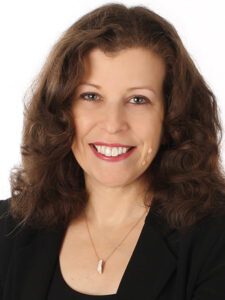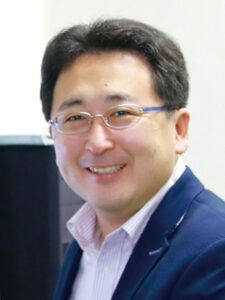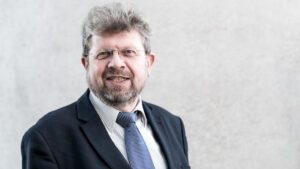Session 6: Residency and Lifestyles of Memory Cells
Chairs: Hyun-Dong Chang, Christine Falk
11:10 – 11:35 Donna Farber
11:35 – 12:00 Koji Tokoyoda
12:00 – 12:25 Andreas Radbruch
 Donna Farber
Donna Farber
Columbia University Medical Center, New York City, New York, USA
Immune memory in humans across tissues and age
Biosketch
Donna L. Farber, Ph.D. is the George H Humphreys, II Professor of Surgical Sciences (in Surgery), Professor of Microbiology and Immunology at Columbia University. The focus of Dr. Farber’s research is on anti-viral immunity and human immunology. Dr. Farber’s laboratory originally identified tissue resident memory T cells in the lung which mediate optimal protective immunity to respiratory virus infections. These findings led her to establish a major initiative in translational immunology to study human tissue immunity and its development from infancy through adulthood in multiple mucosal and lymphoid tissues from organ donors of all ages. Dr. Farber currently is the Director of the Human Tissue immunity and Disease Initiative at Columbia University Irving Medical Center and leads NIH/NIAID-funded Program grants on human immunity, anti-viral responses and is part of the Human Immunology Project Consortium (HIPC), and the NIH/NHLBI consortium on human lung aging. She also leads a multi-investigator team to on “Vaccine efficacy and Tissue immunity” funded by the Department of Defense, with the goal of identifying signatures which predict vaccine efficacy. Her research is also supported by the Helmsley Charitable trust and the Chan-Zuckerberg seed network for the Human Cell Atlas. She has over 170 publications, is a fellow of the AAAS, a distinguished fellow of the American Association of Immunologists (AAI), and has served on advisory committees for the NIH, AAI, and multiple editorial boards.
 Koji Tokoyoda
Koji Tokoyoda
Division of Immunology, Faculty of Medicine, Tottori University
Memory T helper cell fate bifurcation
CD4 T cell memory provides long-lasting protection following infection or vaccination. We have shown that memory CD4 T cells specific for blood-borne antigens preferentially reside and rest in the bone marrow and that IL-2 controls the bifurcated differentiation of bone marrow memory CD4 T cells and effector T follicular helper cells in the early phase of an immune reaction. However, it remains unknown how the bifurcation of ‘memory’ and ‘effector’ is controlled by IL-2. Here we indicate that an innate signal can regulate IL-2-dependent and IL-2-independent microenvironments which are required for memory formation. The regulation is induced by MyD88 but not TRIF and does not depend on dendritic cell subsets. Our data suggest that the infectious species and periods determine the balance of ‘memory’ and ‘effector’.
Biosketch
Koji Tokoyoda is a full professor at Tottori University (Japan) and the Leibniz Chair at the German Rheumatism Research Centre (DRFZ) Berlin. He worked at the DRFZ as a post-doc for 4 years and then a group leader for 8 years. He won the Robert-Koch Postdoctoral Prize in 2010. His research focuses on immunological memory and has so far provided the decisive evidence for the niche concept in the field.

Andreas Radbruch
German Rheumatism Research Centre Berlin, an Institute of the Leibniz Association, Berlin, Germany
A Naive Immunologist’s View on Memory
Andreas Radbruch, Emilia Schneider-Revueltas, Lukas Heimberger, Hyun-Dong Chang, Mir-Farzin Mashreghi, Jörn Walter, Pawel Durek, Frederick Heinrich, Yu Shen, Xiangyi Deng, Zixu Wang, Jun. Dong
Specificity and memory of the immune system are adapting us to the pathogens of our environment. They define immunity and autoimmunity. Recent years have seen a paradigm shift in the definition of immune memory cells, with a focus on tissue-resident cells. Yet, another paradigm shift seems required to understand their maintenance, their molecular imprinting and adaptation to chronic inflammation. The current paradigm that memory cells are maintained by “homeostatic” proliferation, driven by the cytokines IL7 and IL15, may be true for experienced T cells of murine spleen, for which it had been established. Our naïve reinvestigation, however, revealed that tissue-resident memory cells of the bone marrow, and even about 50% of those in the spleen, are not maintained by proliferation. Instead, our preliminary evidence suggests that they are maintained like memory plasma cells of the bone marrow, by integrin-mediated contact to stromal cells, activating the PI3K/AKT/Foxo pathway, and making the cells resilient against metabolic stress. The stromal cell niches are thus of vital importance for the maintenance of resident and resting memory T, B and plasma cells at least of the bone marrow, the cells which provide long-lasting immunity to systemic pathogens. To underpin this, memory cells are also imprinted for contact to tissue-specific stromal cells and residency, in that their genes encoding integrins complementary to those of the stromal cells of a particular tissue, are selectively demethylated. Pragmatically, we have used these tissue-specific methylation patterns to demonstrate the mobilization and significant participation of bone marrow resident memory T cells to secondary immune reactions. In view of the strict dependency of resident memory cells on contact to stromal cells, the naïve question comes up: How then are circulating memory T and B cells maintained in the blood, in the absence of contact to other cells?
Biosketch
Prof. Dr. Andreas Radbruch’s scientific career began by studying biology at the Universities of Bonn and Cologne. He continued there at the Institute of Genetics as a junior scientist, where he investigated mutations of antibody genes in B lymphocytes. He showed that antibody class switching in activated B lymphocytes occurs by recombination, and that this recombination is targeted to distinct antibody classes by cytokines secreted by activated T lymphocytes. Thus, memory B lymphocytes develop an antibody memory. His group then analyzed how activated T lymphocytes are instructed and epigenetically imprinted by antigen-presenting cells to express specific cytokines. In this way, memory T lymphocytes develop cytokine memory. In addition to these two types of memory lymphocytes, the group then discovered memory plasma cells that provide lifelong protection from infectious diseases by secreting antibodies. Technologically, this research was based on novel methods of cell sorting and cytometry that the group had developed, such as the MACS technology, immunofluorescent intracellular antibody and cytokine stainings, magnetofluorescent liposomes, and the cellular affinity matrix technology.
After moving to the DRFZ, Andreas Radbruch began to explore the organization of immunological memory as such. In cooperation with the Charité, resetting the immune system of patients with rheumatic diseases by autologous stem cell transplantation, his research group identified immunological memory as a driving force of chronic rheumatic inflammation. His work has contributed to a fundamental paradigm shift in immunology from the view of a ubiquitous immunological memory with its cells circulating through the blood, to the understanding that most cells of the immunological memory are residents of tissues, and are maintained there in niches by distinct connective tissue cells. His research group showed that the bone marrow is a central repository for memory plasma cells: memory B lymphocytes and memory T lymphocytes. This new understanding of immunological memory now also allows for the development of new therapeutic strategies to eliminate the disease-driving, pathogenic memory cells of rheumatic inflammation, cells that do not respond to current therapies.
Andreas Radbruch is responsible for more than 200 original publications and 90 review articles as (co)author, plus a number of patents and patent applications. His work has been honored with a number of awards, including the Carol-Nachmann Prize in Rheumatology, the German Immunology Award (Avery-Landsteiner Prize), the Karl-Heinz Beckurts Prize, and an Advanced Grant from the European Research Council (ERC). Andreas Radbruch has made the DRFZ a center of modern, translational inflammation research through close structural networking with Charité Universitätsmedizin Berlin, Berlin universities and non-university research institutes in Berlin. He is, among other activities, a member of the German National Academy of Sciences Leopoldina, the Berlin-Brandenburg Academy of Sciences (BBAW), the European Molecular Biology Organization (EMBO), and is Past President of the European Federation of Immunological Societies (EFIS).
